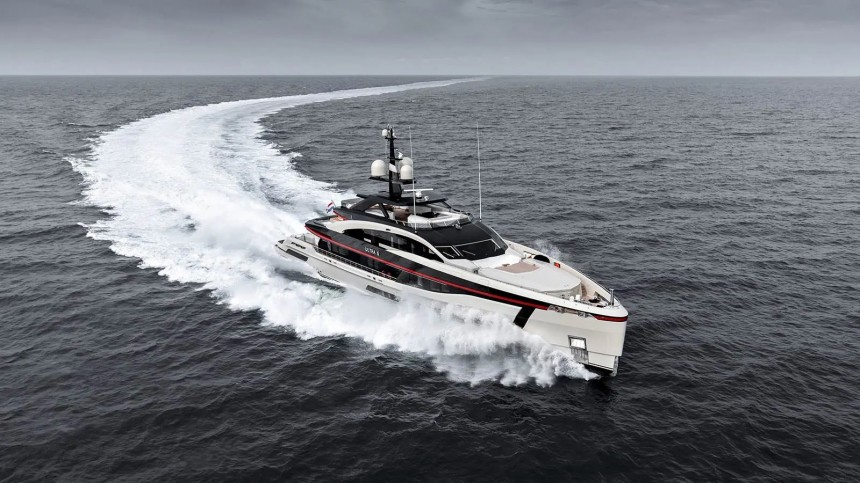An approach like imposing economical sanctions and the seizure of valuable assets for an undetermined period has ripple-like effects across multiple aspects of life and businesses. One of these effects is a marked drop in sales of superyachts.
Speaking strictly numbers, superyacht sales dropped by 17% both for new and old vessels, both big and small. However, the sharpest reduction in number is noticeable in superyachts than in smaller vessels, specifically those bigger than 200 feet (61 meters) in length.
According to the report, it’s not all bad news: even with the drop in number, sales are still better than they were before the 2020 international health crisis. Moreover, sales still amounted to 203 completed deals and any year that records over 200 deals is considered a good one.
Photo: Heesen Yachts
As noted above, the rich are hurtin’, but it’s not that bad.
Unless, of course, those rich are Russian or have ties with President Putin and qualify for sanctions. As per the same report, the Russian presence on the new-build segment was near-zero throughout the year. It’s not so much that they no longer have the cash to pay for new superyachts, as that their cash is no longer any good. As we’ve seen many times over recent months, luxury shipyards working on vessels for Russians had to find legal workarounds to finish the projects – and then sold them to the highest, non-sanctioned bidder.
So, who’s picking up the slack for Russian oligarchs? American owners, it seems. The report notes that the number of American superyacht owners is growing, just like their preference for bigger vessels.
“The strength of the US economy just continues to defy expectations, and Florida (where most of the US owners base their boats) has been doing particularly well,” Ralph Dazert, head of intelligence at SuperYacht Times, which put together the report, says in a statement. “The top end of the market has been hit by the Russian pullout, but it is beginning to bounce back, with mainly inquiries from the US again.”
The ripple effect of sanctions will continue to be felt for years on the high-end market, which is expected to be further impacted by the Israeli-Palestinian war and the upcoming U.S. elections.
Credit: Source link
